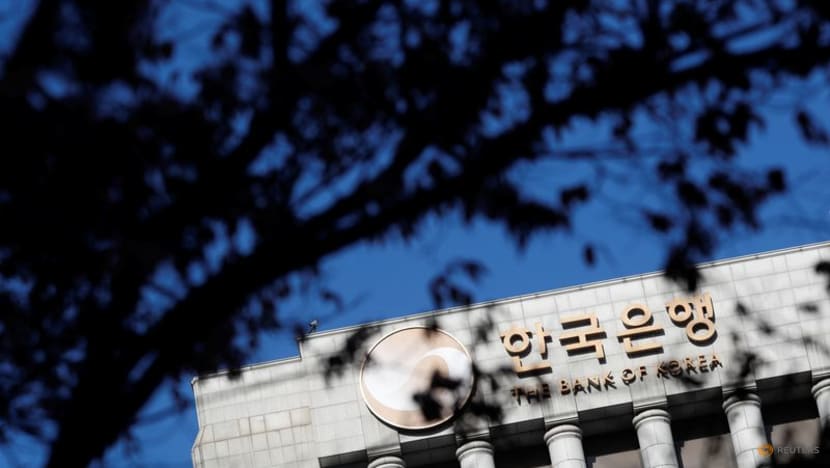BOK to hold base rate on Jan 11 and not cut until Q3

The logo of the Bank of Korea is seen in Seoul, South Korea, November 30, 2017. REUTERS/Kim Hong-Ji/File Photo
This audio is AI-generated.
BENGALURU : The Bank of Korea will keep its key policy rate unchanged at 3.50 per cent for an eighth consecutive meeting on Thursday as inflation eases and until at least Q3 despite some concerns around financial stability, a Reuters poll found.
With inflation currently at 3.2 per cent, above the central bank's 2 per cent target, and the Korean won down around 1.8 per cent against the dollar so far this year, the BOK is unlikely to change its hawkish stance anytime soon.
However, Governor Rhee Chang-yong said in a New Year speech the BOK would adopt a "policy mix" to bring down inflation and needed to prepare for the possibility of financial uneasiness that may be triggered by monetary policy remaining restrictive.
All 38 economists in the Jan. 3-8 Reuters poll expected the BOK to leave the base rate unchanged at 3.50 per cent on Jan. 11.
"They (the BOK) will freeze the policy rate for the time being, but are likely to loosen their stance a bit," said Stephen Lee, chief economist at Meritz Securities Research Center.
"The most likely scenario for the BOK's pivot will be in 2H24. By then, both headline and core inflation will fall below 2.5 per cent...increasing the need for policy support related to a soft-landing. The problem can be bigger if interest rates remain higher throughout the year."
According to the central bank, inflation was expected to return to its target in late 2024.
Median forecasts showed interest rates remaining on hold until end-Q2, followed by 25 basis-point cuts in each of the remaining two quarters of this year, unchanged from a November poll.
Among those who had forecast through Q3, nearly half or 11 of 24 economists expected interest rates to fall to 3.25 per cent. While 10 saw them at 3.00 per cent, two predicted no change at 3.50 per cent and one saw rates at 2.75 per cent.
If realised, the BOK's easing cycle for this year would be shallower than what is expected from the U.S. Federal Reserve, one of Korea's largest trading partners.
"There is not enough reason for the BOK to begin easing earlier. Healthier exports should mitigate weaker domestic demand following the BOK's restrictive monetary policy while the government's fiscal policy can provide selective support for the weaker segments of the economy," noted Jin Choi, economist at HSBC.
"We think the Board will likely retain its cautious stance mainly for two reasons. Firstly, we are not in for fast disinflation ahead. Moreover, the BOK has been stressing the risk of accumulated cost pressures faced by various domestic producers."
Economic growth will improve this year, averaging 2.1 per cent in 2024 from 1.4 per cent last year, BOK estimates showed.
(For other stories from the Reuters global economic poll:)


